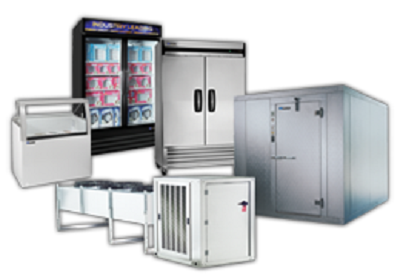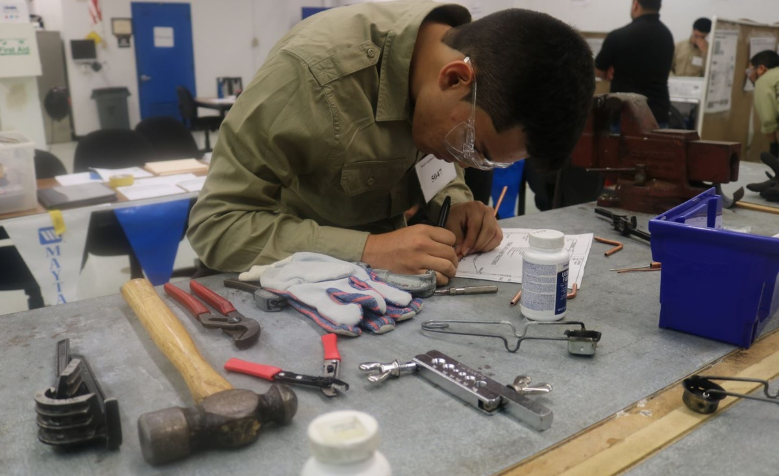Essential Tips for Effective Ref Fixing to Prolong Device Lifespan
When it comes to your refrigerator, appropriate repair work and upkeep are essential for longevity. Comprehending usual problems and knowing when to act can make all the difference.
Comprehending Typical Fridge Issues
Refrigerators are essential in maintaining your food fresh, however they can encounter an array of common problems that interrupt their efficiency. One regular problem is poor cooling. If you see food spoiling quicker than common, check the thermostat settings or consider if the door seals are harmed. Another common issue is too much sound, which could suggest a malfunctioning compressor or a falling short follower. You could also experience water pooling inside or below the refrigerator; this often arises from a clogged defrost drainpipe or a defective water line. In addition, if your refrigerator's light isn't functioning, maybe a simple bulb issue or an issue with the door switch. Ice buildup in the freezer can impede airflow and cooling efficiency. Identifying these issues early can conserve you money and time in repair services, ensuring your fridge runs smoothly and efficiently.
Normal Upkeep Practices
To maintain your home appliances running smoothly, you require to stay on top of regular maintenance methods. Tidy the condenser coils, inspect the door seals, and keep track of the temperature setups to assure peak performance. These simple jobs can save you money and time on repairs down the line.
Tidy Condenser Coils Regularly
Cleaning your condenser coils regularly can substantially improve your home appliance's performance. Dirt and dust develop on these coils over time, triggering your home appliance to function harder and consume even more energy. To keep them tidy, disconnect your appliance and thoroughly get rid of any safety covers. Use a vacuum with a brush add-on or a soft brush to gently remove debris. If required, a mixture of warm water and moderate cleaning agent can aid eliminate stubborn crud. Ensure to allow whatever dry completely prior to reconstructing and connecting the home appliance back in. Purpose to clean your coils at the very least twice a year, or a lot more typically if you have pet dogs or stay in a dirty setting. This straightforward task can prolong the life expectancy of your home appliance substantially.
Examine Door Seals
Three simple actions can help you ensure your home appliance's door seals are in great problem. 2nd, tidy the seals using cozy, soapy water to eliminate any kind of particles or crud. By complying with these steps, you'll preserve your device's efficiency and long life, saving you money on energy costs and repair work in the long run.
Monitor Temperature Level Setups
On a regular basis checking your home appliance's temperature settings is crucial for finest efficiency and performance. Whether you're handling a refrigerator, fridge freezer, or stove, keeping an eye on these settings can protect against many issues. For refrigerators, goal for temperature levels between 35 ° F and 38 ° F; for fridges freezer, stick around 0 ° F. If the temperatures are also high or reduced, your home appliance might function harder, wasting energy and shortening its lifespan. Utilize a thermostat to examine these settings on a regular basis, especially after major adjustments, like moving your device or readjusting the thermostat. If you notice changes, change the settings as necessary and get in touch with the user guidebook for guidance. By remaining proactive about temperature level surveillance, you'll guarantee your home appliances run smoothly and last longer.
Fixing Cooling Issues
When your fridge isn't cooling effectively, it can bring about ruined food and lost money, so dealing with the issue without delay is vital. Begin by checking the temperature settings to confirm they're at the recommended levels, generally around 37 ° F for the fridge and 0 ° F for the freezer. If the setups are right, evaluate the door seals for any type of voids or damage; a malfunctioning seal can permit cozy air to go into.
Following, check out the vents inside the refrigerator and fridge freezer. Validate they're not blocked by food things, as this can interfere with air movement. Listen for the compressor; if it's not running or making unusual sounds, it might require interest. Examine the condenser coils, typically located at the back or bottom of the unit. Dirt and debris can collect, triggering cooling down problems. Tidy them with a vacuum cleaner or brush to enhance performance. If problems continue, it could be time to call a specialist.
Fixing Water Leakage and Ice Accumulation
If you're taking this article care of water leakage or ice accumulation in your home appliance, it's vital to identify the source of the issue. By identifying where the water is originating from, you can prevent more issues and prevent costly repair work. Allow's check out some effective methods to tackle these common troubles.
Identify Leak Sources
How can you properly determine the resources of water leakage and ice build-up in your home appliances? Beginning by examining the seals and gaskets on your refrigerator and fridge freezer doors. A used or damaged seal can allow cozy air to enter, causing condensation and ice. Next off, examine the drainpipe frying pan and drain system for obstructions or obstructions; a backed-up drainpipe can lead to water merging. Try to find any kind of loosened connections in the water system line, which can produce leakages. Likewise, take a look at the defrost drain for ice accumulation, which might disrupt proper drainage. By methodically checking these locations, you'll determine the resource of the trouble, permitting you to take the required actions to fix it and extend your home appliance's life expectancy.
Stop Ice Development
To avoid ice development in your home appliances, start by validating the temperature level settings are appropriate. If your fridge or fridge freezer is as well cold, it can lead to excessive ice accumulation. Inspect the door seals on a regular basis; harmed seals can allow warm air in, triggering condensation and ice development.
Maintain the home appliance well-ventilated and stay clear of congestion, as this can block air flow - Washing Machine Repair Dependable Refrigeration & Appliance Repair Service. Regularly defrost your freezer if it does not have an automatic defrost function.
If you observe water leakage, identify and fix any blocked drainage holes, as they can add to ice build-up. Ultimately, clean the coils and validate they're functioning appropriately to keep peak performance. Taking these actions click here now will assist prolong your home appliance's lifespan and efficiency.
Attending To Noisy Fridge Seems
While it may seem worrying, a noisy refrigerator frequently indicates minor problems instead of significant malfunctions. Initially, identify the source of the sound. Typical offenders consist of the compressor, fans, and water lines. If you listen to a humming audio, it could be the compressor striving; this might simply be a typical procedure sound.
Next, look for loosened things inside. In some cases, containers or shelves can rattle, producing unwanted sound. Tighten up or reorganize them to eliminate the noises.
If you notice a clicking sound, it could be the defrost timer. This is typically safe yet could indicate it needs inspection.
Lastly, confirm your refrigerator is degree. An unbalanced appliance can produce vibrations and sound. Utilize a degree to inspect, and adjust the feet if required. Attending to these issues quickly can help keep your fridge's performance and lengthen its lifespan.
When to Change Parts vs. Complete Substitute

Nevertheless, if your device is older and experiencing multiple problems, a full substitute might be extra cost-efficient. Think about the expense of repairs versus the device's worth. If repairs surpass 50% of a brand-new device's rate, it's typically better to spend in a substitute. Additionally, if you notice recurring troubles that maintain repeating, it's an indicator that your appliance has gotten to the end of its life. Evaluate these aspects thoroughly to make the finest decision for your demands and spending plan.
Recognizing When to Call a Specialist
Exactly how can you inform when it's time to call a professional for device repair? If you observe unusual noises, scents, or leakages, it's a clear signal that something's wrong. Don't ignore these indicators; they commonly indicate deeper issues. If your appliance stops working entirely or often journeys circuit breakers, it's another red flag.
You ought to likewise consider your very own convenience level with repair work. If you're unsure about detecting the trouble or lack the right tools, it's finest to get to out for help. Keep in mind, trying complicated repairs can bring about even more damages or perhaps safety and security dangers.

Frequently Asked Inquiries
How Commonly Should I Clean the Refrigerator Coils?
You need to cleanse your refrigerator coils every 6 months. This helps keep efficiency and protects against overheating. If you notice excessive dirt or pet hair, tidy them a lot more often to guarantee your refrigerator runs efficiently.

Can I Make Use Of Vinegar for Cleaning My Refrigerator?
Yes, you can utilize vinegar to clean your refrigerator! It's a superb all-natural cleaner that gets rid of smells and discolorations. Washing Machine Repair Dependable Refrigeration & Appliance Repair Service. Just blend it with water, use it to surfaces, and wipe down for a fresh, clean refrigerator
What Temperature Should My Fridge Be Set To?
You ought to establish your refrigerator to 37 ° F(3 ° C) for ideal food preservation. This temperature maintains your food fresh while avoiding spoilage, ensuring your grocery stores last longer and reducing waste. It's a simple modification you can make!
Does a Refrigerator Need to Be Leveled?
Yes, your fridge requires to be leveled. If it's irregular, it can impact cooling efficiency and cause excess sound. Inspect the progressing legs and change them to ensure appropriate equilibrium for perfect performance.
Just How Can I Lower Fridge Energy Usage?
To lower your refrigerator's energy intake, maintain it tidy and well-ventilated, examine door seals for leakages, set the temperature between 35-38 ° F, and avoid overwhelming it. These steps can significantly reduce your energy bills.